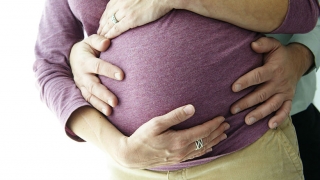Understanding Grief and Loss
Grief is a natural part of coping and healing after loss. There is no right or wrong way to grieve, but stages of grief have been described to help people understand some of the thoughts and emotions they might experience.
These stages do not necessarily represent a step-by-step guide to grief; a person may move from one stage of grief to another, or may skip some steps entirely, only to experience them at a later time. You may find that you and your partner, two people experiencing the same loss, grieve in completely different ways and may not be in the same stage of grief at the same time (see “Partners in Grief” resource page). This is normal.
Common stages of grief
DENIAL is often described as a feeling of disbelief about a situation, or the thought that this just cannot be happening. Common thoughts people may have during denial:
- “There is nothing wrong with my baby. The doctors are wrong.”
- “This isn’t happening to me.”
ANGER following a loss may be directed at strangers, members of a healthcare team and even loved ones. The anger you may feel while grieving may disguise itself as anger about other things. It is possible that you may be more short-tempered than you usually are or find excuses to start arguments about things that wouldn’t normally bother you. Common thoughts people may have while experiencing anger:
- “You’re wrong. You don’t know what you’re talking about.”
- “I did everything right during the pregnancy. This isn’t fair.”
GUILT is characterized by assigning, or assuming, blame for what has happened. Common thoughts people may have include:
- “What did I do to deserve this?”
- “I must have done something to cause this.”
DEPRESSION is a time of great sadness following a loss. It is important to realize that depression is a stage of grief, but also can develop into a clinical problem (see "Recognizing Symptoms of Depression and Anxiety" resource page). Common thoughts people may have while experiencing depression:
- “I never knew I could hurt so much.”
- “No one understands what I’m feeling.”
- “I don’t know how I’m ever going to feel better.”
ACCEPTANCE is often described as the final stage of grief. Acceptance does not mean happiness or even accepting the situation you are facing, but rather it is a feeling of integration about your loss. It is the ability to hold on to your grief, while also taking steps to move through it. You may feel that you have reached acceptance only to flip back to one of the other stages of grief. Again, this is normal.
Grief does not have a timeline. It is typical for a person to relive or re-experience any of the above stages following a period of grieving. Anniversaries, the expected date of birth, holidays, and other events may trigger your grief after loss.

